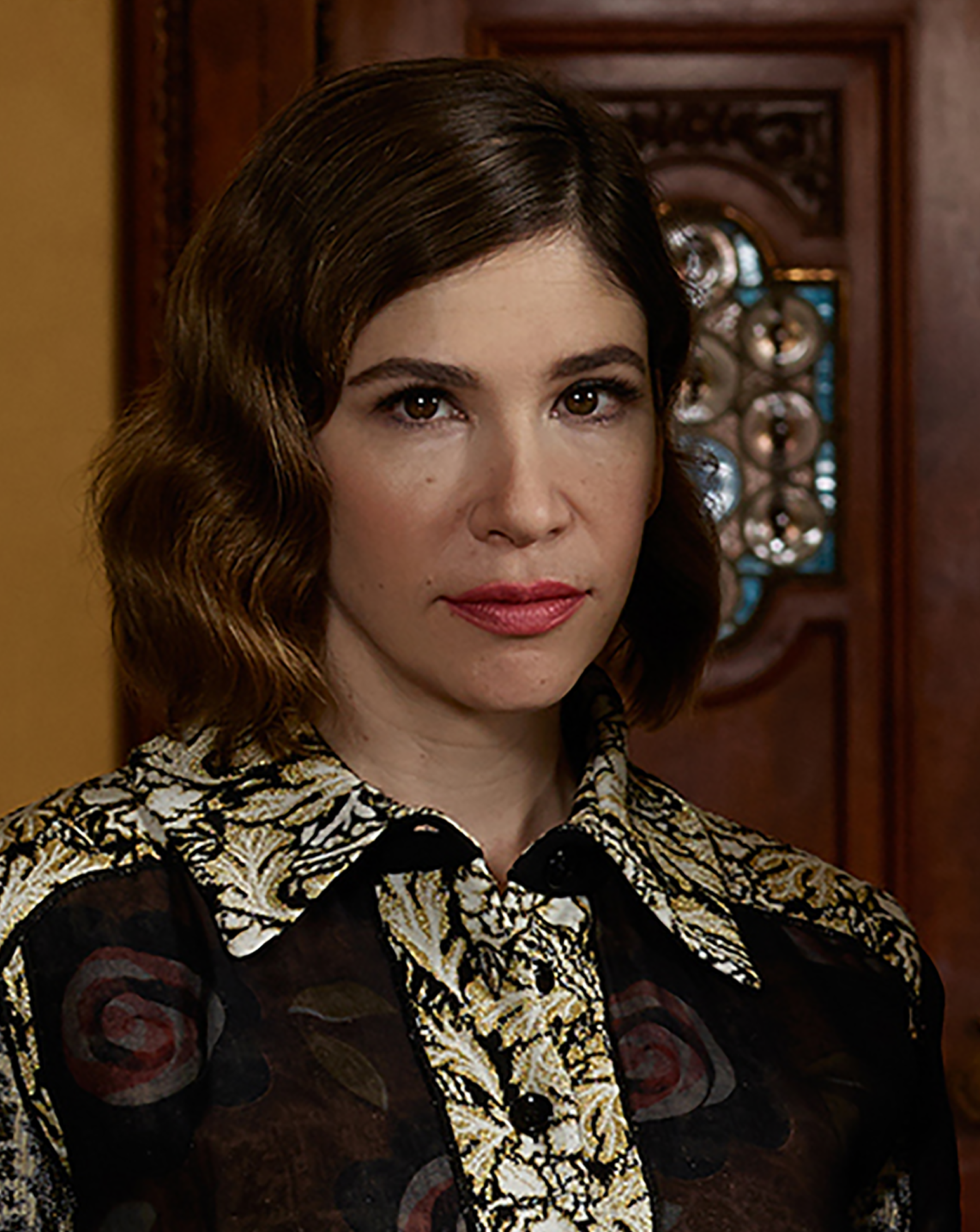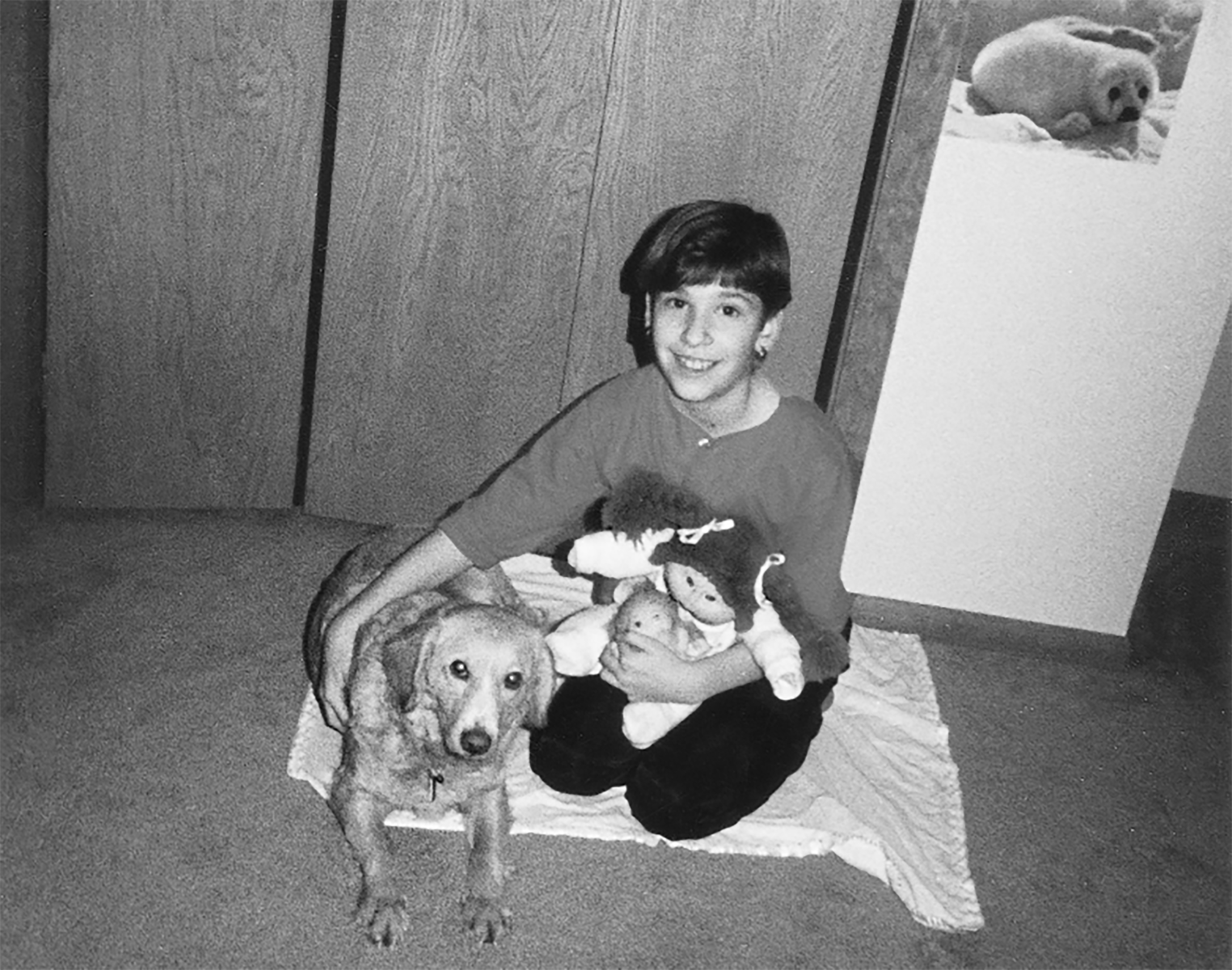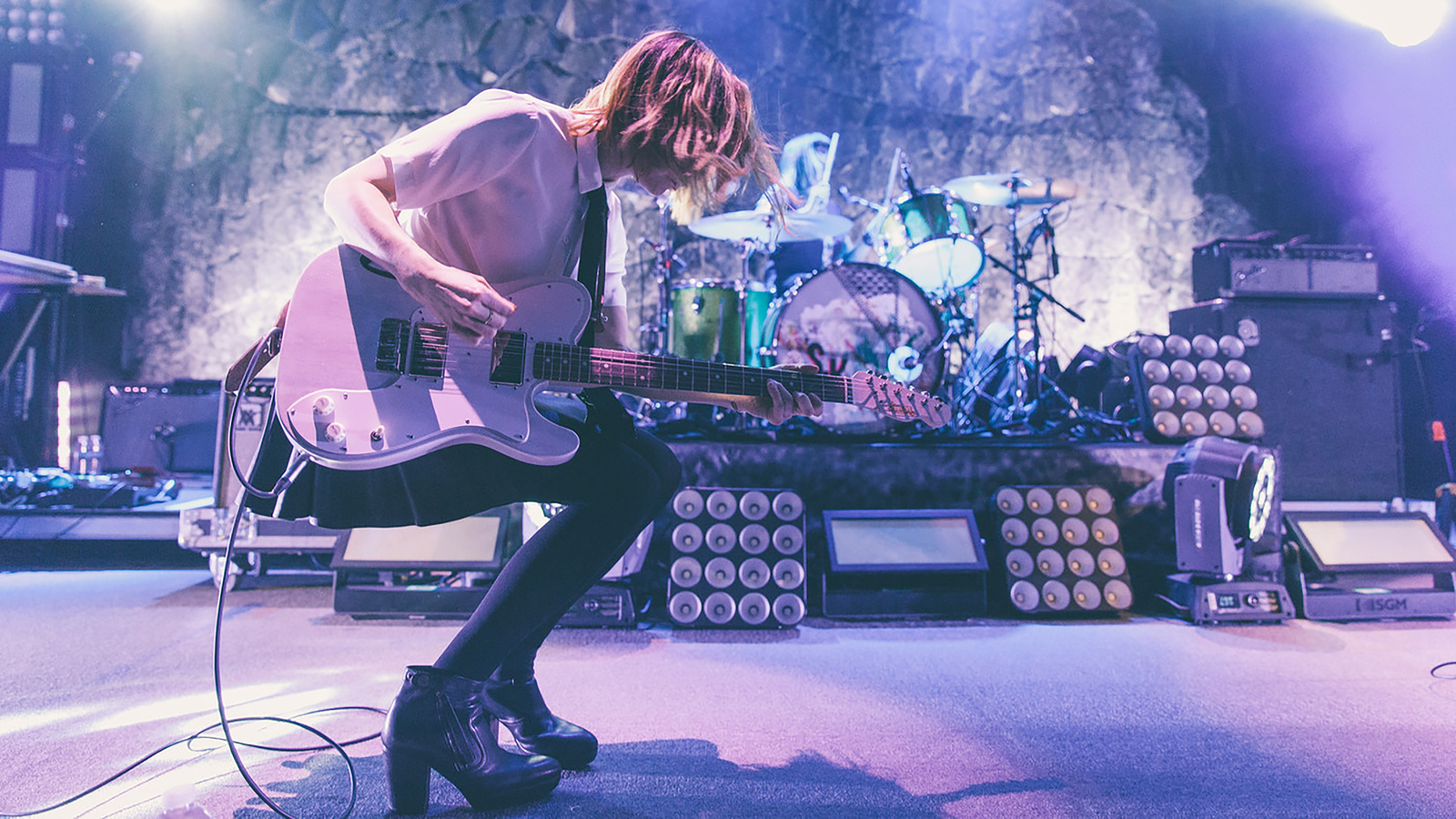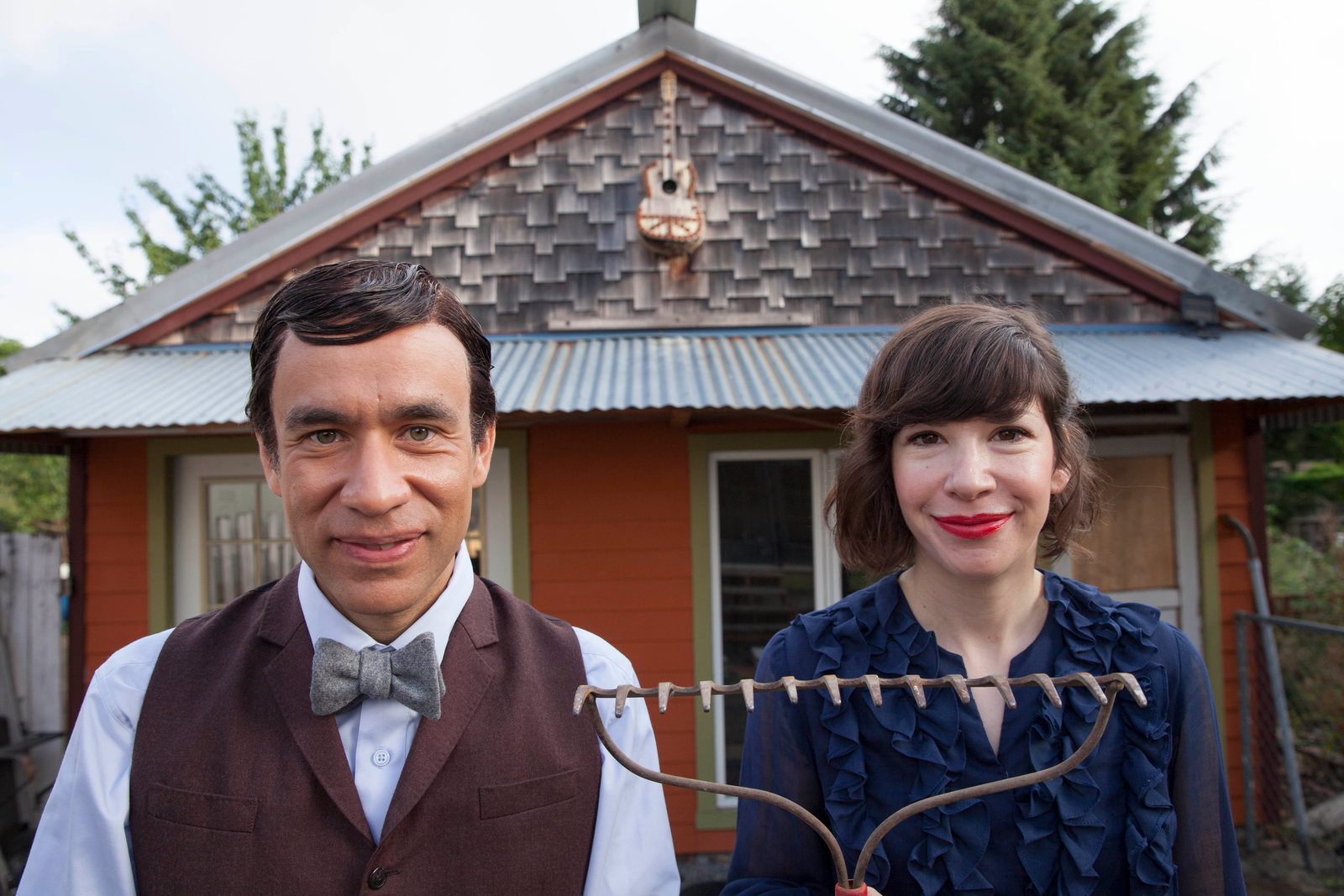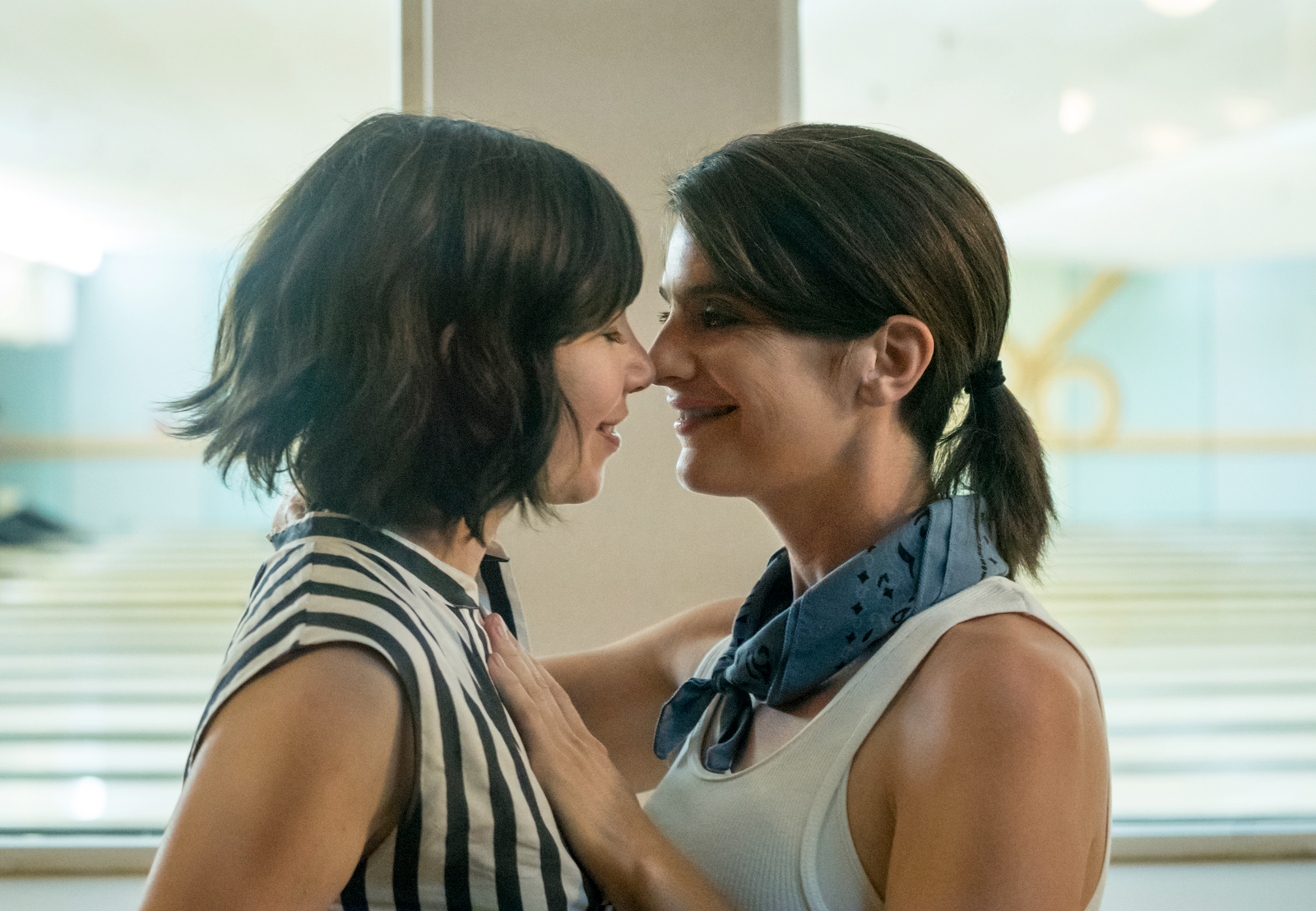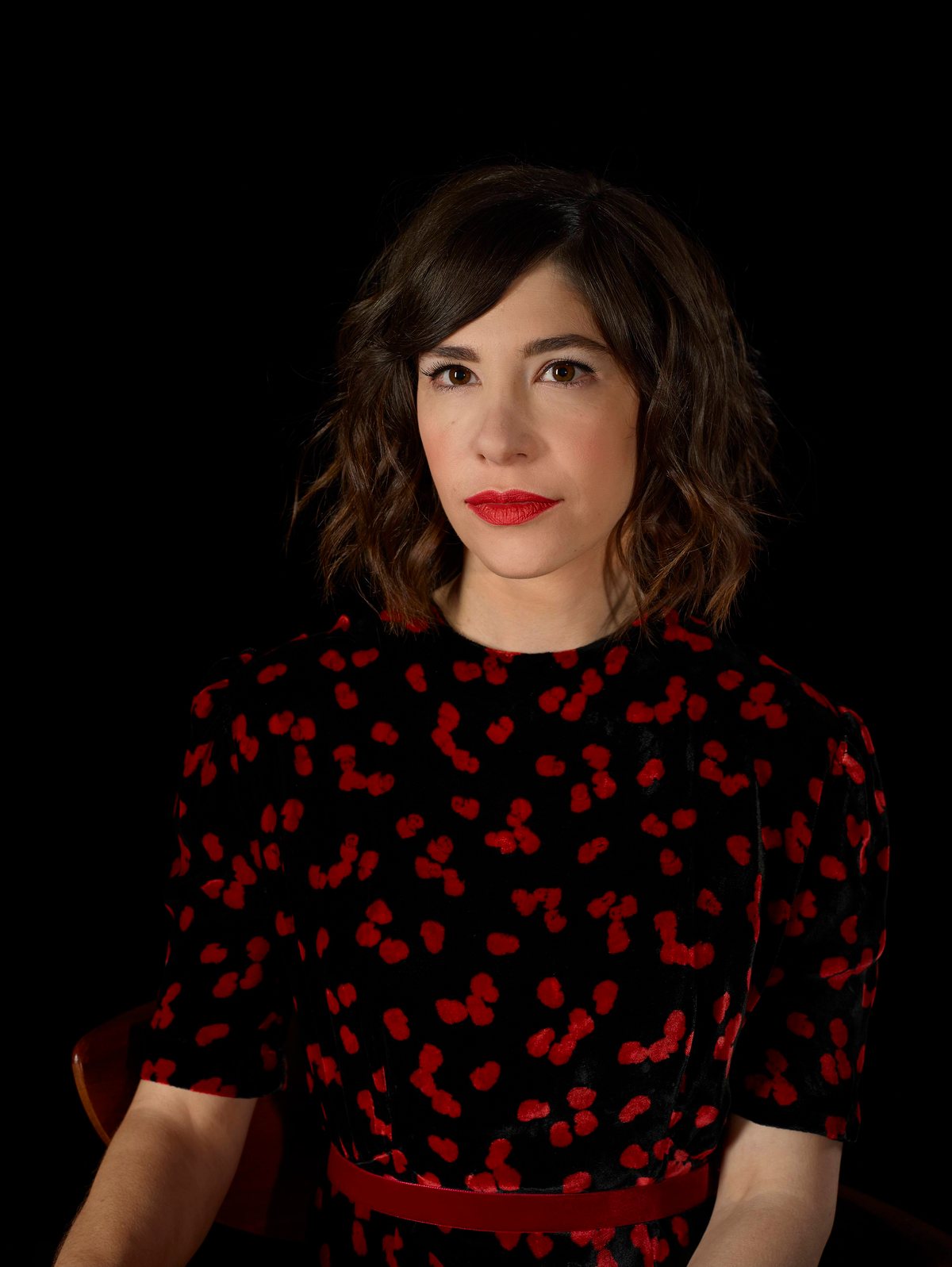I think, as with a lot of people, my entrance and foray into music was motivated by wanting to change myself. I think personal transformation through art and creativity is often the initial goal, especially when you're young. Music is an immediate avenue for escape or exploration, so I think my initial goal was being able to figure out who I was and who I wanted to be. But, especially with a medium like music, and playing in a band and being part of a music community, you quickly realize that it's not an individual experience; it's a collective experience, and once you're looking at the collectivism or the community, then I think your goals for wanting to change things start to exist outside of your own self... Then I think it became about creating. I think at first it was just creating space for other young women (or people) who felt marginalized; to see themselves and hear themselves reflected in our songs and to be part of a centering of narratives that had been sidelined. So, the change that I wanted to create was about centering marginalized stories and creating an aspirational environment, and also to lend validation to anger and dissatisfaction and that anger can be a productive sort of methodology; that it wasn't necessarily anathema to progress, that it was sometimes a necessary vernacular. Those are some of the goals.
Sources of influence and inspiration
I think one avenue that I turned to a lot for inspiration and edification, then and now, was books and authors and thinkers. Whether it was James Baldwin, Joan Didion, bell hooks, or Patti Smith; these were people that were writing in ways that was emotional but intellectual, that didn't make such a distinction between the personal and the political; that saw art as a weapon, and that was very interesting to me. And then also through absurdism. I love things like Kids in the Hall or Monty Python; the people that were making sense of the world through a different kind of dissection. It was less of an academic or intellectual exploration, even though I think it was highly cerebral, the way it manifested itself was via humor and silliness. I think that started to form sort of the two polar ends of how I look at things. One is through this kind of seriousness and rigor and then the other side is levity, and I think some combination there is what I usually like to land upon.
The music community in Olympia and the other music scenes that were in conversation with Olympia provided a lot of role models who I had access to in an epistolary way. Definitely my bandmates—Corin’s still one of my best friends and I think she had this earnestness to her and a conviction that I found very inspiring. She had a fearlessness that I had yet to really be able to embrace. There was Kathleen Hanna and Tobi Vail (of Bikini Kill), both very sophisticated thinkers. Kathleen always had a very sharp sense of humor and wit in her work which I found very interesting and admiring for how instantly her lyrics coupled that. Tobi was mostly writing fanzines and she was almost in continual dialogue with culture and wrote what I would consider a series of manifestos. I thought that approach was interesting, just to put things out there as hooks that people could kind of latch onto was really exciting to me. I had a professor at the Evergreen State College named Susan Fiksdal—she was my sociolinguistics professor—and she really informed her coursework in her own pedagogical study and really informed a lot of my thinking about language and culture and discourse analysis and really started a lifelong interest in the specificities and the sort of performative nature of conversation and discourse. I saw that in Portlandia; as an interest in the ways that people perform personhood or couplehood and the way people communicate within a city or communicate within a given context. Then there was a woman named Allison Silverman, who had been—I think—the head writer at The Colbert Report, who also worked on The Office, and on Unbreakable Kimmy Schmidt. And she came on the first year of Portlandia and she knew that I was coming into this world through kind of a side door—that's how I felt, at least. I was really addled with this kind of imposter syndrome that I think almost anyone feels when they're placed on a foreign landscape; by questioning their validity in being there. And she was very encouraging, and I felt like I was kind of taking a crash course in comedy writing throughout. I try to sort of model what she did for me in my own life, which was just to listen, to understand that there is that fear when you first enter a room—a figurative or literal room—where you're kind of forced to speak in a different register. I really am so grateful for her generosity and kindness.
Relationships and community in her art
One thing that I write about in my memoir was while I was in Sleater-Kinney, because of who I am and sort of what my interests are, I would always be asked to comment on and explain the phenomena of the band. I was always sort of asked to be the explainer, and I think Janet and Corin—even though they obviously were doing interviews as well—I was often the one who would be tasked with that parsing of what we were trying to do and what we were setting out to do. I think that was a natural extension of my interest in observing interactions and minutia; and I'm fairly analytical. There was this seed of storytelling, of a story that was sort of the real thing that existed and then there was an elevated story around it. I was always interested in how those two things interacted asperity between what was the actual and then the perceived. It was about examining people's relationship to community and place and I think a lot of Sleater-Kinney (maybe not literal place) was questioning and trying to comprehend a relationship to maybe a metaphysical place, or a sort of figurative of place in the world. Portlandia was more specific to how to interact with our friends or with neighbors or with city and became a stand in for many places and spaces... It was part of an ongoing conversation that I was having with myself, an ongoing thought process and exploration of relationships and connections to very different mediums. Certainly one using the vernacular of absurdity and sometimes the realism; whereas Sleater-Kinney never did, there was a sort of earnestness in a ferocity that we would never employ with Portlandia. I think that feistiness, that interest in imperfection and messiness is something that continued between the two different forms. I suppose an element of surprise and how different the entities Sleater-Kinney and Portlandia are for myself—the through line is writing and storytelling and really wanting to bowl two kind of posit—to put forth an idea and to hear people's reaction to it and to see what they felt. Sleater-Kinney is definitely a line in the sand for whether loving it or whether its not to your taste and that's OK with me. So I see a lot of commonalities, but I'm kind of aware that the shape of those two endeavors is very different.
I feel like I'm someone who is witty and observational, and occasionally I am funny. I mean, there's the kind of people that put funniness forward first, whereas I kind of sit back and observe and then strike. That's how I’ve kind of always have been. Even in Sleater-Kinney I was always kind of sitting on the periphery and taking stock of everything. Figuring out a pithy, potentially humorous way of assessing it was kind of always my M.O. It's definitely different than being a stand-up comic or somebody who presents in a way that is very joke forward.
It's interesting, because a lot of my Jewish identity is through this lacking. It's definitely an identity that is placed on many of us without sometimes knowing what that means, especially if you grew up without the actual religious practice... My parents both were really assimilated and growing up in Seattle, where there are not a lot of Jews. I felt a sense of otherness but couldn't quite put my finger on what that was. Because there wasn’t a counter narrative for me to embrace where I understood, “This is why I'm different, this is what it means to be Jewish and this is what we practice,” and it was this kind of no-man's land. To me, in some ways being Jewish is a no man's land—it's about questioning who we are, why we're here, what is our place in the world, and how do we do the right thing. I mean, what is Jewish in general is to kind of feel a sense of displacement. Living in Los Angeles where there's a lot of practicing Jews across the spectrum of Orthodoxy, it’s really nice to embrace some of the traditions that I didn't have growing up. You hear people, you know, going to Shabbat dinner and going to Passover. Being around people who really embrace being Jewish and the culture surrounding it has been important to me as I've as I've gotten older. I'm also someone in the industry who didn't change my last name, so I think that's always interesting. Whether you want it, whether you know what it means to be Jewish or not from a religious perspective, you’re always kind of labeled that anyway, and so it’s better to embrace it, which is perfectly fine with me. It's really nice to be in a city where there are a lot of Jews. It’s a good feeling because growing up on the Eastside, there was kind of a wave of antisemitism in my schools for a while; it was much more of an otherness up there for a while. It's very much part of the fabric in Los Angeles and in comedy, and I’m really sort of relishing that community down here.
To me, directing is a very natural extension of writing, producing, and performing; taking the words on a page and being able to elevate them and interpret them visually. In my case, I've been lucky to even direct something, and I want to be in charge of that visual language. Working with Todd Haynes and Jill Soloway—both vastly different directors and creators and a taste level that is impeccable, and who both have very strong points of view that is fearless in its uniqueness and that is unafraid to be disliked (but is not averse to the grotesque or the profane)—these are things that both Todd and Jill have. They're both meticulous, though in very different ways, and I think that attention to detail is really important because when it's done right the audience is not aware of it, but you realize that density of “out of the worlds” they're creating; that they're so immersive. Both are really inspiring to work with.
Thoughts on the #MeToo movement
I think the #MeToo movement is part of a long tradition of, although varying iterations of resistance, of protest and of organizing. What I find the most exciting about it is that it is really aiming to address the institutional and systematic oppression of systems like capitalism and of systems like patriarchy, that in conjunction can create very exploitative environments that rely on the subjugation of other people. And I think when we start looking at the ways that those systems of domination are pernicious for men and women then I think, via intersectional feminism, we’re able to start to kind of chip away at the primacy of those ideologies. I like there’s a lot of promising elements to this right now and part of that is not ignoring class, not ignoring the ways that this affects everyone and that we can examine how we're each kind of complicit. It takes really forward thinking and real-life participation and I think people are looking at not only themselves, but their communities. I think by keeping it focused on the local and the communal, hopefully we'll start seeing some real change, but yeah, it's an exciting time and I think—I hope—it can sustain itself or at least create some systematic changes that will be in place even if the media gets tired of reporting on it.
